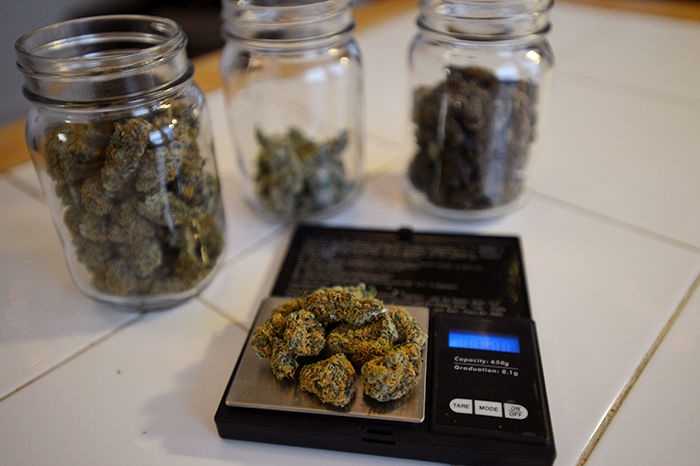Federal marijuana hostility unfounded
Marijuana is legal and taxed in some states, including Washington and Colorado, but a federal law could change this.
March 29, 2017
As favorability for the legalization of medical and recreational marijuana continues to rise, Republican officials continue to support unpopular positions.
A recent nationwide poll from Quinnipiac University found 71 percent of Americans would oppose a federal crackdown on legal marijuana, and 93 percent are in favor of marijuana legalization.
Meanwhile, prominent Trump administration officials have made ominous comments concerning the enforcement of federal marijuana law.
At a daily news briefing on March 23, White House Press Secretary Sean Spicer said he expects states to face “greater enforcement” of federal laws against marijuana, even in the 26 states where the substance has been either decriminalized or legalized.
His comments throughout the briefing seemed to imply that recreational marijuana use was linked to the opioid epidemic, a claim most of us know as the gateway drug theory, or the widely-discredited catchphrase for the war on drugs.
Marijuana isn’t a “gateway” to harder drugs, just like ordering a milkshake at Cougar Country isn’t a “gateway” to buying a Super Basket.
According to years of scientific research outlined by VICE and other organizations, the vast majority of people who try marijuana never proceed to use other illegal substances, and there is no conclusive evidence to associate marijuana use with painkiller or opioid addiction. In fact, the opposite is true.
The pain-relieving effects of marijuana are actually associated with a significant decrease in medication side effects and frequency of use of opioids for chronic pain patients.
Additionally, data from the Washington State Healthy Youth Survey affirms that marijuana usage rates for eighth-, 10th- and 12th-graders in Washington have remained essentially unchanged for the past decade.
Despite overwhelming scientific evidence, President Donald Trump’s officials, like Attorney General Jeff Sessions, a long-time critic of marijuana, continue to echo ignorant statements about the substance.
“I’m not sure we’re going to be a better, healthier nation if we’re going to have marijuana being sold at every corner grocery store,” he said at a Senate hearing last April. He went on to say, “Good people don’t smoke marijuana.”
But federal officials aren’t the only ones who are out of touch.
Brad Klippert (R), Washington’s 8th Legislative District representative, recently introduced House Bill 2096, “repealing all laws legalizing the use, possession, sale or production of marijuana and marijuana-related products” in the state.
The bill was read on Feb. 13 and sent to the House Commerce and Gaming committee, where it was likely dead on arrival.
Republicans have relentlessly been outspoken about reducing regulations that stifle businesses. This normalized hypocrisy is staggering and should evoke some consideration when mid-term elections come around.
Since the passage of Initiative 502, which legalized marijuana in Washington, legal recreational marijuana sales have exceeded $1.4 billion, according to the March 17 weekly report from the Washington State Liquor and Cannabis Board (WSLCB).
This tax money goes toward state health services, the WSLCB, drug and alcohol education programs, and marijuana research at the University of Washington and WSU.
A crackdown on states with legal medical and recreational marijuana could be a possibility, but the move would certainly be wildly unpopular – something the Trump administration probably doesn’t need right now.
Should push come to shove, Americans need to be ready to act and use their votes.
Josh Maasberg is a sophomore political science major from Murrieta, California. He can be contacted at 335-2290 or by [email protected]. The opinions expressed in this column are not necessarily those of the staff of The Daily Evergreen or those of The Office of Student Media.





















